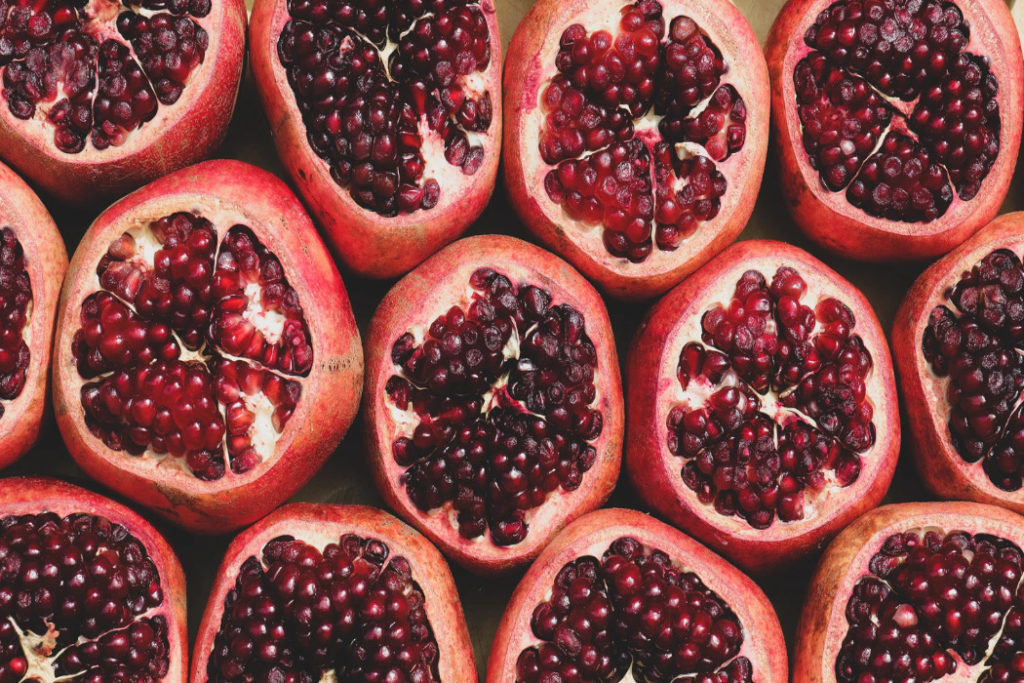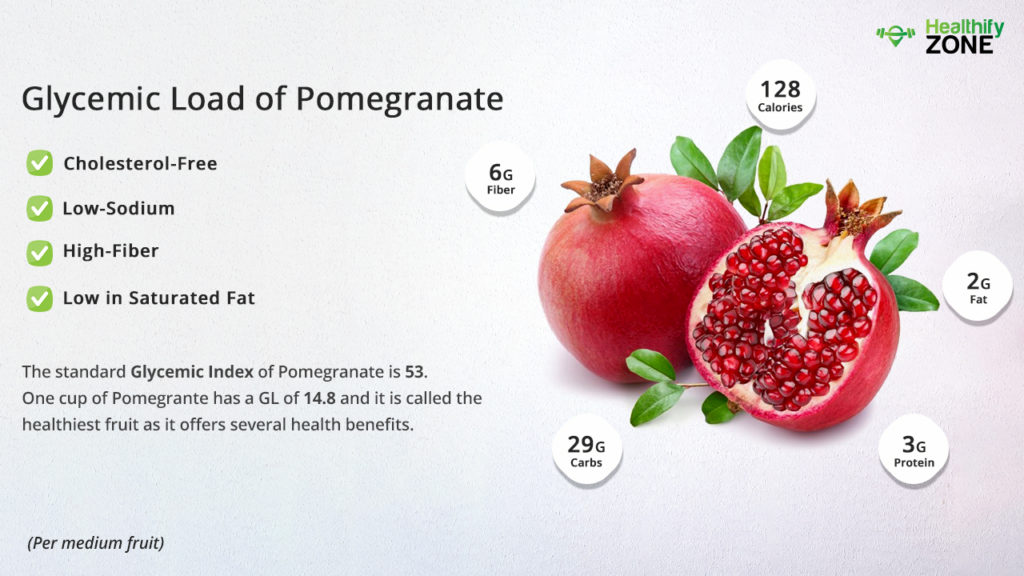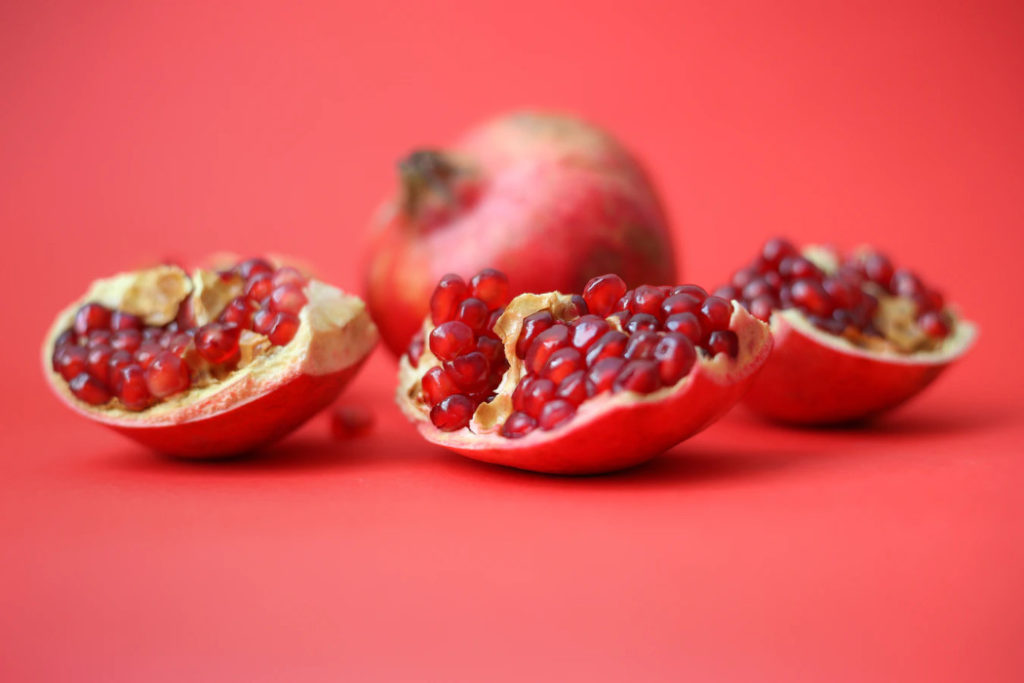The carbohydrate content of food with the pace with which it increases your blood glucose levels is called the Glycemic Load. A simple way of making healthy diet choices is following the Glycemic Index, which helps in comparison and finding alternative sources of nutrients according to your blood glucose levels. Glucose leads to a high blood glucose response in comparison to fructose.
Pomegranates are known to be the healthiest fruits because of the varying beneficial plant compounds present in them. There are studies that have proven their various health benefits for your body that can possibly lower the risk of diseases. According to the International GI Tables, it has a GI of 53.

Pomegranate is a sweet fruit that is loaded with healthy nutrients like
- Vitamin C
- Vitamin K
- Folate
- Potassium
- Punicalagins
How to Calculate Glycemic Load of Pomegranate?
The standard Glycemic index of pomegranate is 53. The high glycemic index of the fruit helps in reducing the risks related to cardiovascular diseases. If we want to talk about diet, the key to prevent diabetes or any chronic illness is to distribute the carbohydrate consumption content throughout the day and manage the sugar levels in the body correctly—however, the glycemic load for one cup of pomegranate= 14.8 approximately which makes it an extremely favorable fruit to be consumed any time of the day.
The Formula/Procedure For Calculation of Glycemic Index of the Pomegranate :
GL = GI * carbs / 100
where
- GL – glycemic load;
- GI – glycemic index;
- and carbs – the amount of carbohydrates in the portion.

| SL.NO | POMEGRANATE BY WEIGHT IN (g) | GLYCEMIC LOAD |
| 1. | 100 g of Pomegranate | 9.8 (low) |
| 2. | 250 g of Pomegranate | 24.5 (high) |
| 3. | 500 g of Pomegranate | 49 (high) |
| 4. | 1 Kg of Pomegranate | 98 (very high) |
| 5. | One Whole Pomegranate | 18 (medium) |
| 6. | 1 Cup of Pomegranate | 14.8 (medium) |
Is Pomegranate Safe to Consume If You Have Diabetes?
People who have diabetes have an increased risk of atherosclerosis, which is the hardening of arteries, and it causes heart disease, heart attacks, strokes, and other circulation problems. Studies have shown that drinking pomegranate juice can help with diabetes and lower the risk of atherosclerosis. This is an excellent choice because the natural sugars present are not harmful and highly beneficial. You can easily incorporate a cup of pomegranate into your diet.
Can I Eat Pomegranate During a Fat-Loss Diet?
You can eat pomegranate during a strict fat-loss diet. If you are looking for good results, you should avoid having more than 1 cup of pomegranate per serving.

- 1 cup of pomegranate has a GL of 14.8 which is in the permissible levels.
- Pomegranate as a fruit salad ingredient is premissible in a fat-loss diet.
Can I Eat Pomegranate During a Low-Carbohydrate Diet?
You can have pomegranates during a low-carbohydrate diet. However, you must make it a point to be careful about the portion size that you consume. You must refrain from consuming more than 1 cup of pomegranate.
Is Pomegranate High in Sugar?
The arils in pomegranate are very sweet. One cup of pomegranate, which is about 150 g has 24 grams of sugar. While this seems sugary, it is all-natural sugar, which is not as harmful, and given that pomegranate has several healthy properties, it is one of the best fruits to add to your diet.